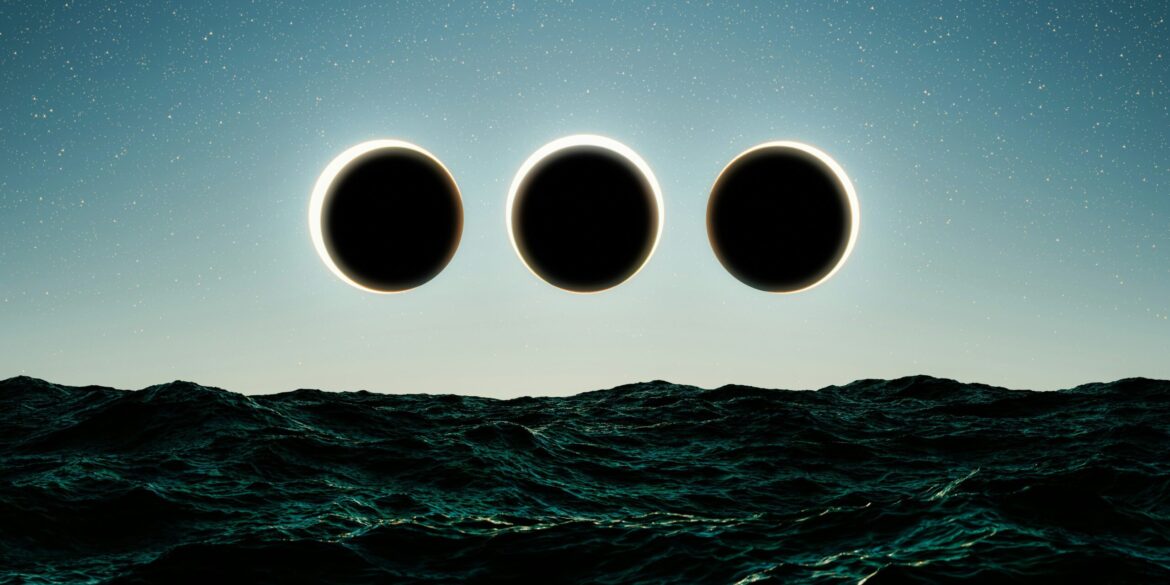In a groundbreaking collaboration that has excited fans of both film and music, the synthwave band The Midnight has teamed up with celebrated director Ava DuVernay to adapt their latest album, Eclipse, into a full-length feature film. Released on June 5, 2025, the film marries the evocative music of The Midnight with a stunning visual narrative that delves into themes of love, loss, and the passage of time, pushing the boundaries of what a cinematic adaptation of a music album can achieve.
A New Frontier for Music and Film
The partnership between The Midnight and Ava DuVernay marks a visionary approach to both filmmaking and music. The band, known for their nostalgic yet modern synthwave sound, has become synonymous with a genre that mixes 1980s retro vibes with contemporary electronic music. Their latest album, Eclipse, which draws heavily on atmospheric sounds and introspective themes, seemed tailor-made for a filmic adaptation.
DuVernay, acclaimed for her thought-provoking storytelling and rich visual style in films like Selma and A Wrinkle in Time, is no stranger to tackling ambitious projects that touch on issues of race, identity, and human emotion. Her decision to direct Eclipse underscores her commitment to exploring new creative frontiers. With a signature focus on deeply emotional narratives, DuVernay’s approach to Eclipse offers a fusion of science fiction and romance that perfectly complements The Midnight’s music, enhancing the album’s themes and giving fans a truly immersive experience.
The film follows two protagonists, each grappling with their own struggles and losses, whose lives serendipitously intersect in a futuristic, neon-lit cityscape. The city itself becomes a character in the story, a sprawling urban expanse illuminated by glowing signs and towering skyscrapers, echoing the shimmering electronic soundscapes that define The Midnight’s music. Each track from the album serves as a soundtrack to the emotional highs and lows of the characters, weaving seamlessly into the plot and elevating the overall narrative.
The Plot of Eclipse: A Journey of Love and Loss
At its core, Eclipse is a love story set against a backdrop of a dystopian future where the boundaries between human emotion and technological advancement are increasingly blurred. The film explores the complexity of human connection in an age dominated by artificial intelligence and virtual reality. It centers on two main characters: a woman named Evelyn, who is mourning the recent death of her partner, and a man named Asher, whose life is thrown into turmoil as he tries to come to terms with his past while discovering new possibilities for love in a futuristic world.
Their lives collide when Evelyn, a scientist working on a cutting-edge project to resurrect memories through virtual simulations, crosses paths with Asher, who is a test subject for the technology. As they become drawn to each other, they uncover deep emotional connections and confront the ghosts of their pasts. The film’s central themes explore the nature of time—how the past impacts the present—and the idea that love and memory are what truly make us human, even in an increasingly mechanized world.
The narrative structure of Eclipse mirrors the ebb and flow of the album’s tracks, from the quiet, reflective moments to the energetic, intense sequences. DuVernay expertly uses the music to set the tone for key scenes, with each song acting as both a sonic landscape and an emotional cue, guiding the audience through the protagonists’ personal journeys.
Visual Style and Cinematic Approach
DuVernay’s signature cinematic style is evident throughout Eclipse, with sweeping shots of the neon-drenched cityscape that draw inspiration from both classic science fiction films and contemporary art-house cinema. The futuristic setting—complete with towering holograms, sleek glass buildings, and hyper-advanced technology—serves as a visual metaphor for the characters’ emotional isolation and longing.
What makes Eclipse particularly striking is the way DuVernay employs color and light to enhance the atmosphere of The Midnight’s music. The neon glow of the city, the deep blues and purples of the night, and the warm hues that emerge during intimate moments all mirror the album’s rich palette of synths and beats. The music isn’t merely a backdrop; it’s woven directly into the emotional fabric of the story. As the characters face life-altering decisions, the music swells, creating a deep connection between what the audience is hearing and seeing.
In a bold artistic move, DuVernay also incorporates abstract sequences that allow the film to transcend traditional narrative storytelling. These surreal moments—accompanied by The Midnight’s hauntingly beautiful instrumentals—serve to express the more intangible, emotional aspects of the characters’ experiences, such as the sense of time slipping away or the feeling of being lost in a sea of memories.
Critical Reception: A Groundbreaking Fusion
Since its premiere, Eclipse has been met with overwhelmingly positive reviews from both critics and audiences. The film’s innovative blending of music and narrative has captured the attention of major publications, with Variety calling it “a groundbreaking fusion of sound and vision.” The film’s integration of The Midnight’s evocative synthwave sound with DuVernay’s visual storytelling has been praised as a flawless marriage of art forms, creating a film that is both a sensory experience and a poignant emotional journey.
In a review from The New York Times, critic A.O. Scott lauded the film’s “flawless integration of music and narrative,” describing Eclipse as “a film that feels as much like an experience as it does a traditional movie.” The New York Times noted that the film’s ability to merge these two worlds—where music is not just a background element but a central part of the storytelling process—is something entirely new for cinema.
The film’s focus on themes of memory, love, and human connection in a technological age has resonated deeply with audiences. Many have praised Eclipse for its emotional depth and its ability to reflect the complexities of modern relationships. The band’s loyal fanbase has embraced the film as a visual companion to the album, while newcomers to The Midnight’s music have been drawn into the evocative world DuVernay has created. Critics also note the film’s universal appeal, commenting on its ability to transcend genre and connect with a wide range of viewers.
Audience Response: A New Kind of Musical Film Experience
Audiences have responded with enthusiasm, particularly praising the film’s unique approach to storytelling. Fans of The Midnight, already familiar with the album’s themes, have appreciated the deeper exploration of the music’s emotional resonance through the visual medium. But it’s not just music fans who have embraced the film; Eclipse has captured the imagination of moviegoers who may have never heard of The Midnight before.
“I’ve never been so moved by a movie that was based on an album,” one viewer shared during a post-screening discussion. “The way the music is woven into the story is just incredible. It felt like I was experiencing the album on a whole new level.”
The film’s reception at international film festivals has been equally impressive. Eclipse has been featured at prestigious festivals including Cannes, Toronto, and Sundance, where it has been celebrated not only for its bold creative risks but also for the caliber of its performances and the depth of its emotional storytelling. The film’s screening at these events further solidified its potential to become a major cultural touchstone, with some speculating that it could influence future projects that seek to combine music and film in such a seamless manner.
Future Implications: A New Era for Music-Driven Films
As Eclipse continues to garner accolades, many are considering the broader implications it may have on the future of music-driven cinema. The film represents a new era of storytelling in which music is no longer just a complement to the visuals but a fundamental part of the narrative itself. Its success could open the door for more artists to explore cinematic adaptations of their music, creating a new genre that blends concert films, music videos, and feature-length storytelling.
For Ava DuVernay, Eclipse represents another bold step in her career, as she expands her creative horizons and takes on projects that push the boundaries of traditional filmmaking. Her partnership with The Midnight could pave the way for other collaborations between directors and musicians, ultimately blurring the lines between music, film, and visual art.
Conclusion: A Cinematic Milestone
As Eclipse continues its run at film festivals and prepares for a wider release later this year, it stands as a testament to the power of music in film and the potential for new forms of artistic expression. With its beautiful fusion of The Midnight’s atmospheric soundscapes and DuVernay’s cinematic mastery, Eclipse has not only redefined what a music-inspired film can be, but also opened the door to new, innovative storytelling possibilities for the future.
This collaboration between music and film may be the start of a new era in both industries, as artists, filmmakers, and musicians alike explore new ways to connect with their audiences through the combined power of sound, visuals, and narrative. In Eclipse, we see a future where the line between music and cinema is more fluid than ever before, creating a truly immersive experience that will resonate with audiences for years to come.

